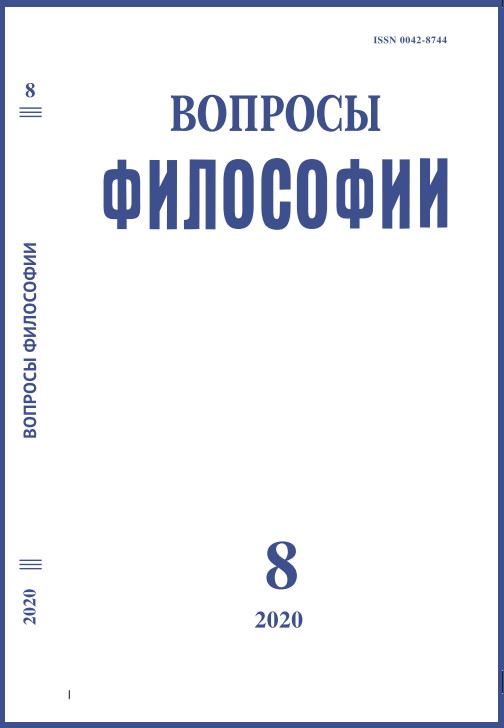Evolution of Morality in Human and Cultural History
DOI:
https://doi.org/10.21146/0042-8744-2020-8-72-83Keywords:
human, morality, culture, paradigm, ethical principlesAbstract
The article considers the emergence of the phenomenon of morality and its evolution in the history of mankind and its culture. The authors present morality as a universal definition of a human, his inalienable property and the universal condition of his being. People cannot exist without a human relationship to each other, without morality, and it was in this connection that I. Kant asserted the autonomy of morality. Morality necessarily arises at the very early stages of the development of human society, like thinking, language, consciousness, labor, inextricably linked with them and with society as a whole. It develops along with the development of man, human culture, all social relations, and reflects in its development the qualitative changes in society. The moral categories that arose at the dawn of the history of mankind are filled with new content, acquire a new meaning, new categories arise, and the old ones recede into the past. Turning to examples from ancient Greek mythology, and then from different historical periods, the authors show how, in the course of history, people’s ideas about morality and about man in general have changed, how these changes have occurred in parallel with changes in the structure of social relations. Based on the views of ancient thinkers – Socrates, Plato and Aristotle, and then on the views of Kant, Montesquieu, Marx, Foucault – the authors investigate the formation of moral categories depending on a person’s understanding of his place in the world and in society and come to the conclusion that a society in which the authority of moral values is reduced, moral guidelines are blurred, cannot exist.

